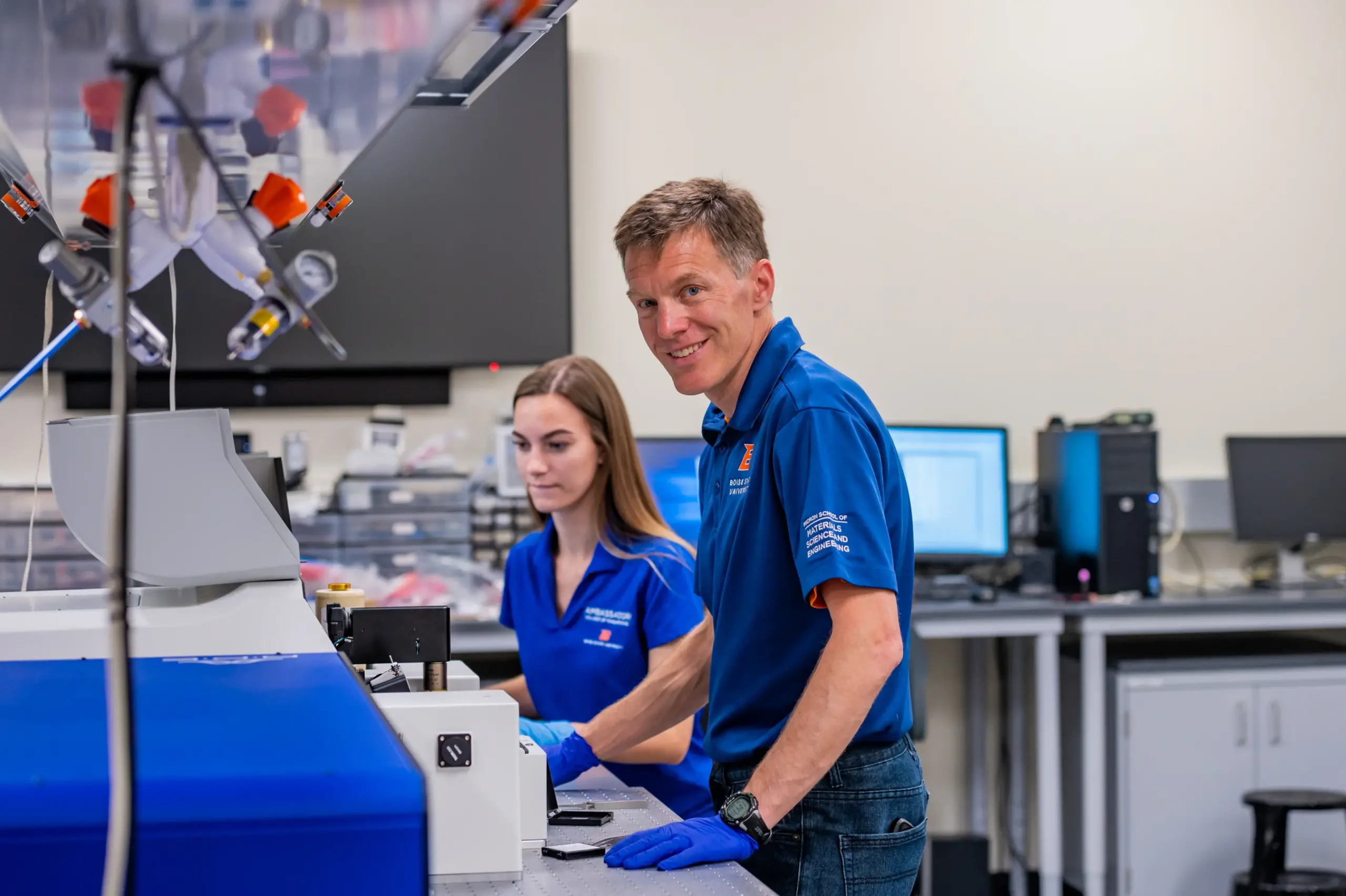
The principal investigator for a sponsored project has various roles and responsibilities to achieve the technical success of the project and maintain compliance. Read on to review information about the core steps of the sponsored project lifecycle, access resources, and review the principal investigator roles and responsibilities.
Sponsored Project Life Cycle Steps
The Principal Investigator is involved during each step of the Sponsored Project Life Cycle, from proposal preparation and submission to award acceptance and management. The Office of Sponsored Programs (OSP) is here to support each step of the way. Each step of the life cycle is detailed further on the right.
The Sponsored Project Life Cycle is an integral part of the Division of Research and Economic Development Research and Creative Activity Ecosystem.
Additional Principal Investigator Information
Quick Links
Funding Opportunities
Technical Reporting
Other Resources
- Advance Department ID / Advance Spending Request Form
- Effort Reporting
- FAQs about the Transition to the New Facilities and Administrative (F&A) Rates
- Master Department ID List Conversion Tool
- No-Cost Extension Request Form
- Sponsored Project Budget v. Actuals (New)
- Sponsored Project Contracting Frequently Asked Questions
- Undue Foreign Influence Guidance
Principal Investigator Roles & Responsibilities
During the proposal process, a lead investigator, which may include roles such as the Principal Investigator (PI) or Project Director (PD) is assigned the Principal Investigator (PI) role on a project. Several investigators can take part in a sponsored project, but Principal Investigators have the primary responsibility for achieving the technical success of sponsored projects while also complying with the financial and administrative policies and regulations associated with the sponsored project agreement (the Award). Although Principal Investigators may have administrative staff to assist them with managing Award funds, the ultimate responsibility for proposing and managing sponsored projects rests with them. The fundamental responsibilities of Principal Investigators during the post-award phase of sponsored projects include, but are not limited to:
- Execute the sponsored project as outlined in the Award using sound management techniques;
- Carry out the sponsored project’s financial plan as presented in the Award or make changes to the plan following a prescribed set of policies and procedures;
- Report progress to the sponsor as outlined in the terms of the Award (see, e.g., Technical/Programmatic Reporting Guidance; National Science Foundation Technical Reporting Guidelines);
- Maintain accurate records of sponsored project-related expenses;
- Comply with all Boise State University (University) policies and procedures related to project management and personnel practices;
- Comply with all applicable sponsor rules, regulations, and/or terms and conditions of the Award; and
- Fulfill the Principal Investigators’ obligations set forth in the Principal Investigator Award Certifications and Assurances.
- Principal Investigator’s responsibilities may be divided into two related but distinctly different sets of activities: (i) management of the Award Scope of Work (SOW) and (ii) responsible spending of Award funds. While the SOW should drive financial activities, sound management practices in both arenas are required. The financial stewardship of Award funds is a shared responsibility between the Principal Investigator, the Principal Investigator’s Business Manager(s), and OSP.
Once a project has been funded, there is the expectation by both the sponsor and OSP that Principal Investigators responsibly spend Award funds. Sound fiscal management of Award funds requires knowledge of and adherence to a prescribed set of federal and locally developed financial guidelines (e.g., Basics of Charging Costs to Sponsored Projects). Over the life of an Award, Principal Investigators may initiate changes to a project that impact the management of awarded funds. Principal Investigators must understand the procedures associated with initiating financial transactions or changes to an Award’s financial plan.
OSP is committed to assisting Principal Investigators’ fulfillment of these responsibilities. In addition to offering workshops and training sessions, OSP has prepared (and will continue to prepare) forms, policies, procedures, and training materials aimed at acquainting Principal Investigators and their Business Managers with information that will positively affect sponsored project management.
Subscribe to OSP Blogs
Subscribe to the PI News, Funding Blast, and Limited Submission Opportunities blogs by clicking Subscribe Here.
Recent OSP News
-
Thursday Apr 10th, 2025
Limited Submission Notice: 2025 NSF EPSCoR Graduate Fellowship Program (EGFP)
Sponsor National Science Foundation (NSF) Summary The NSF EPSCoR Graduate Fellowship Program (EGFP) is a… -
Monday Apr 7th, 2025
Notice of Upcoming Space Survey
The Office of Sponsored Programs (OSP) will be selecting 15-20 departments with high research expenditures… -
Thursday Apr 3rd, 2025
Compliance Reporting
Boise State University relies on our employees and campus community members to conduct university business… -
Friday Mar 28th, 2025
Important Summer Salary Guidance
After coordinating with many stakeholders across the university, the Office of Sponsored Programs has added… -
Thursday Mar 27th, 2025
Think BIG! Workshop, COBRE in Matrix Biology Pilot Project, and March Grant Writing News
Think BIG! Workshop Think Big! is an interactive workshop designed for graduate students and postdocs…